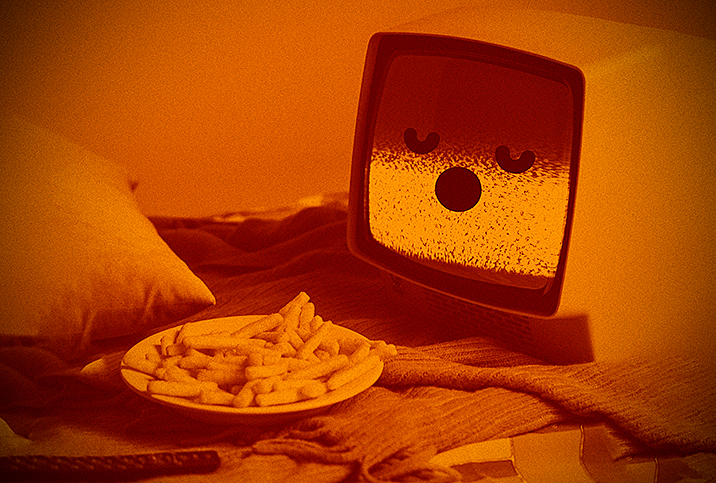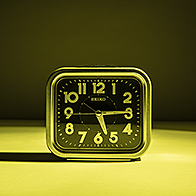How Your Dietary Habits Affect Your Sleep Hygiene

If you're reading this, there's a good chance you woke up this morning feeling groggy and sluggish. It's obvious you didn't sleep well. Why? We can't answer that question definitively, but it's possible that what you ate yesterday could be the reason you feel so tired today. Your daily dietary habits can negatively affect your sleep hygiene, and that's not good. With a little care and attention, however, you can avoid such ill effects in the future.
What is sleep hygiene?
Sleep hygiene is the culmination of your daytime and nighttime activities that contribute to getting a good night's sleep. The most direct behaviors that impact your sleep hygiene are your nighttime routines, such as brushing your teeth, changing into your pajamas and preparing your room for sleep. If you wake up frequently at night or feel tired in the morning, this is a sign of poor sleep hygiene.
What about caffeine?
It's pretty intuitive that having a cup of java right before bed is probably a bad decision, but you may want to put down the coffee pot even before sundown. Caffeine can remain disruptive to your sleep for up to six hours after intake. This means that your late afternoon cup of tea or coffee could still be affecting you at 10 p.m. or later.
To correct this, simply calculate six hours earlier than your usual bedtime and make this the cutoff for caffeine. You can switch to decaffeinated coffee or tea, and don't let other caffeine sources such as soda or chocolate sneak into your dietary choices in this six-hour window.
Can I eat before bed?
We've all heard that we shouldn't eat before bed, but this isn't quite true, and many people with health conditions that impact sleep, such as fibromyalgia, find that a snack within 30 minutes of bedtime can help them get better rest.
While a light snack can help induce sleep, a heavy snack or meal can actually make winding down harder. This happens because your body is trying to digest the large meal when it should be shutting down for sleep, potentially causing indigestion and acid reflux.
What about food earlier in the day?
In addition to nighttime food consumption, the foods you eat throughout the day can impact your overall sleep patterns. Caffeine isn't the only culprit; eating spicy foods can also interrupt your bedtime routine. Consuming spicy foods for dinner could cause heartburn and indigestion at bedtime, since the increased acidity in your stomach acid can last for hours.
There are many other dietary choices that can collectively impact your sleep hygiene if eaten regularly:
-
Fatty foods. Eating fried foods or foods that are high in saturated fat can cause indigestion, which can make it more difficult to fall asleep or stay asleep.
-
Processed foods. Noodles, rice, potatoes and other foods high in starch and carbohydrates strain your digestive system, making it more difficult for your body to induce REM (rapid eye movement) sleep, one stage of the sleep cycle.
-
Alcohol consumption. There's a reason some people go for "nightcaps" after dinner: You may feel more relaxed after a glass of wine or beer, and drinking in excess may even put you right to sleep. But after a few hours, alcohol can cause you to wake up and even prevent REM sleep.
Alternatively, researchers and physicians collectively agree that eating a diet high in fiber and low in fat not only positively impacts your overall health but can also positively impact your sleep hygiene:
-
Healthy bedtime snacks. Look for light foods that are high in natural melatonin, such as nuts, cherries, yogurt, crackers and peanut butter, or apples and cheese.
-
High-protein meals. Protein will help curb hunger without making you overly full or bloated. Some high-protein choices include lean chicken, fish and legumes such as black beans, kidney beans or chickpeas.
-
Fresh vegetables. Whenever possible, a staple of any meal should be fresh produce such as spinach, asparagus or broccoli. When cooking or steaming your vegetables, avoid overcooking them. Eating your vegetables when they are slightly crunchy will allow you to get the most nutrients from your meal.
These are just some of the many healthy options that can prepare your body for sleep. Always remember that portion control is essential in any healthy diet; too much of anything can negatively impact your health and sleep hygiene.
As advances in sleep research continue, one sure bet is that making lasting lifestyle choices is one of the most effective ways to improve your sleep. Quality of sleep can also be a clear indication of your overall health, so ask yourself each day: How did I sleep last night?




















